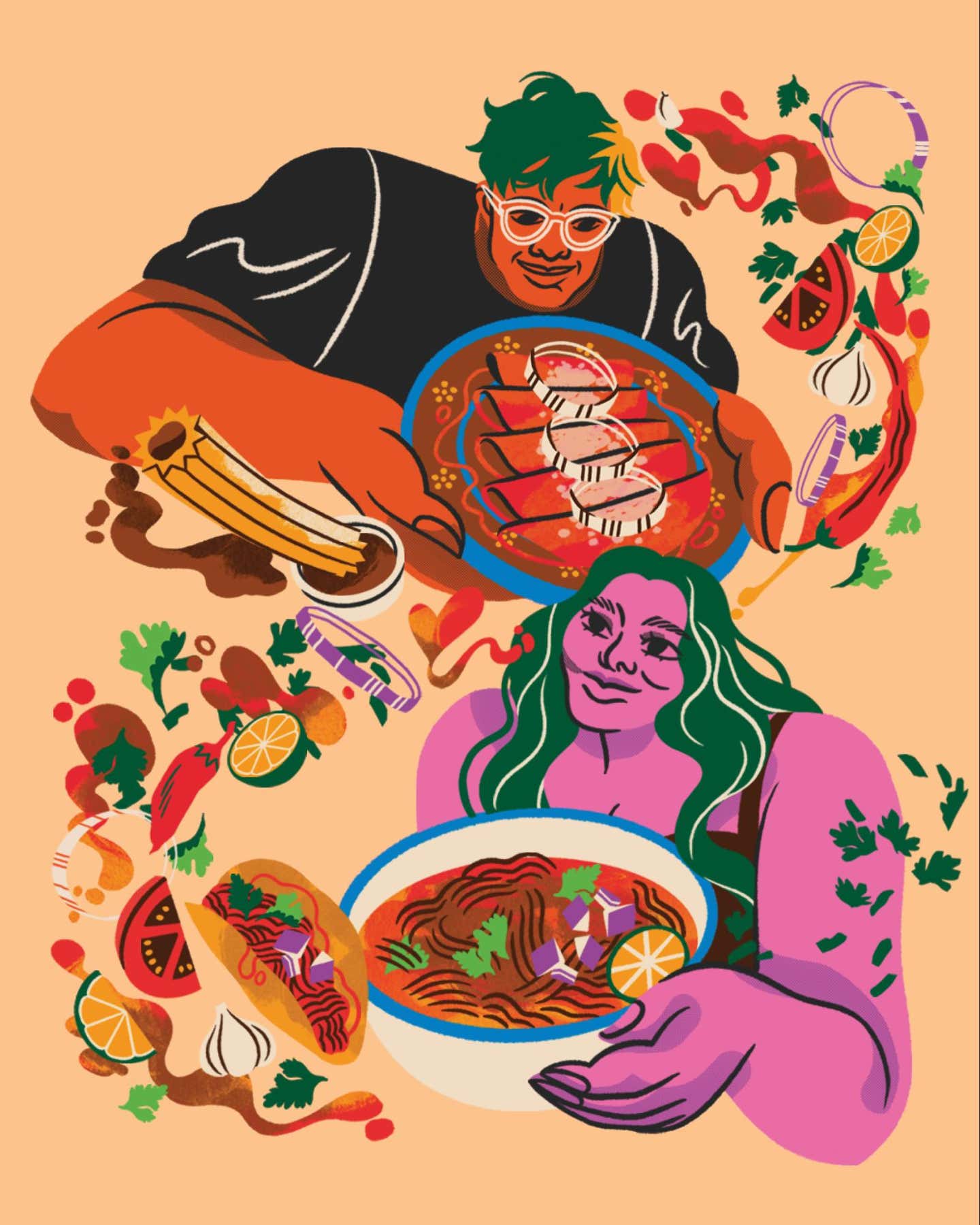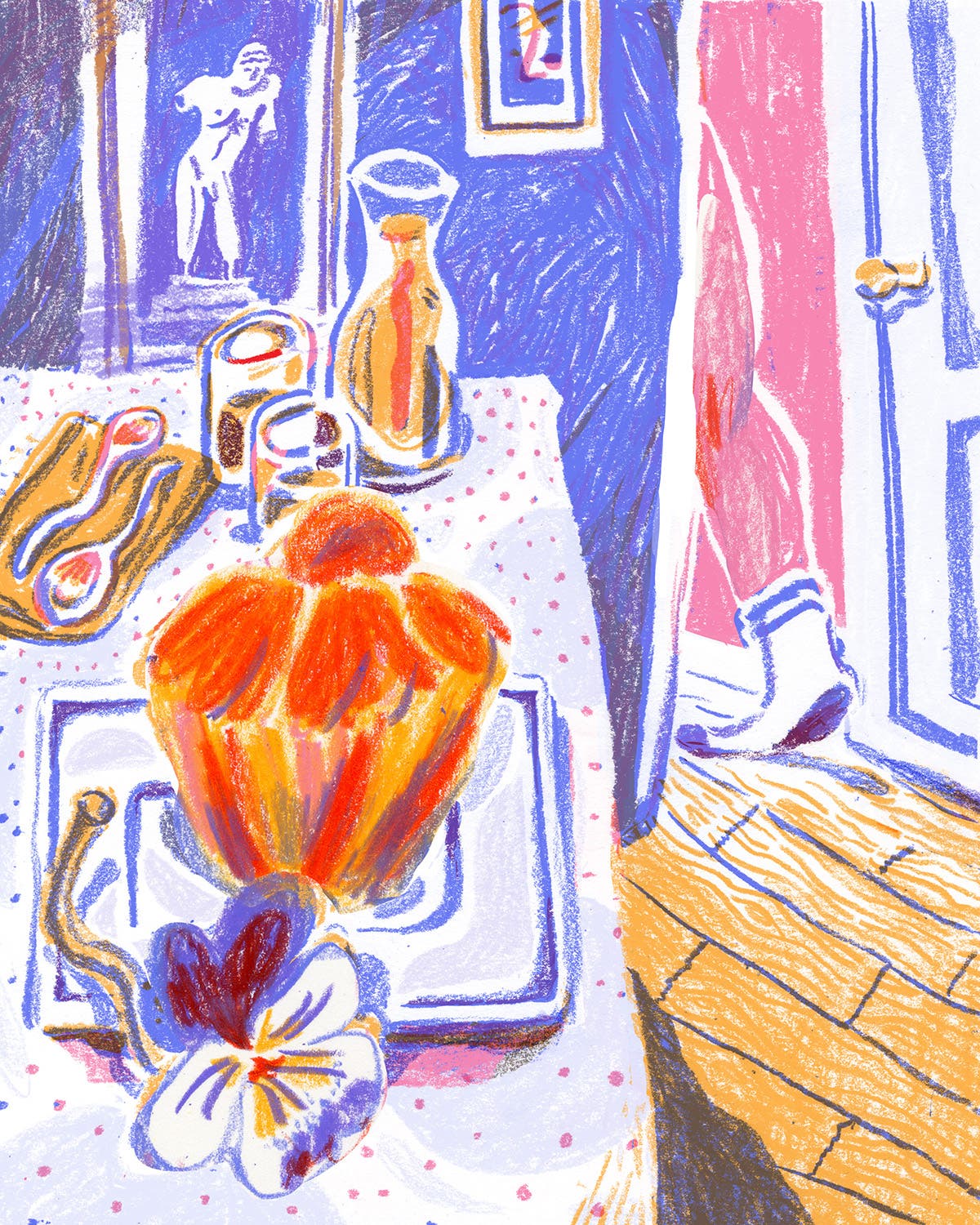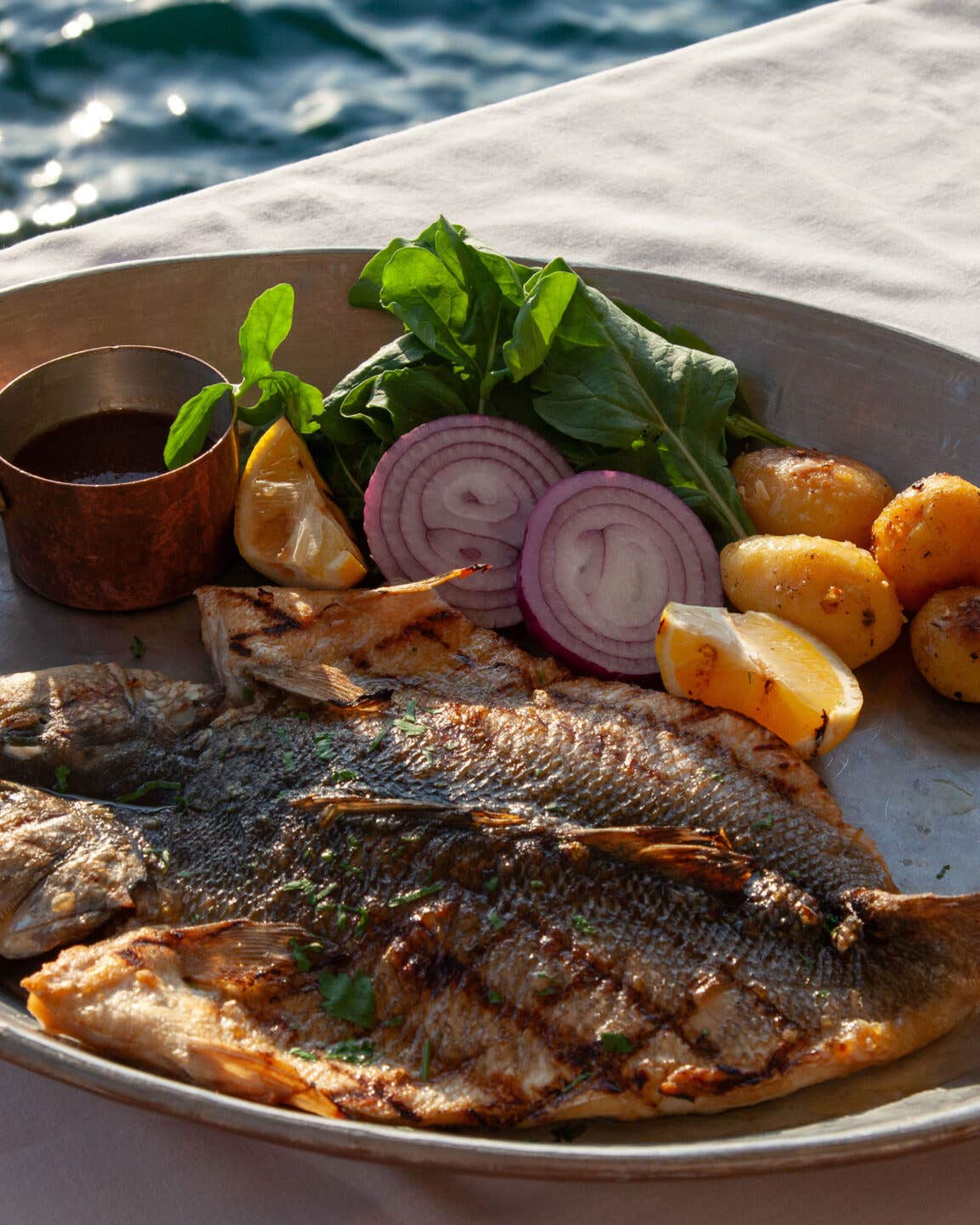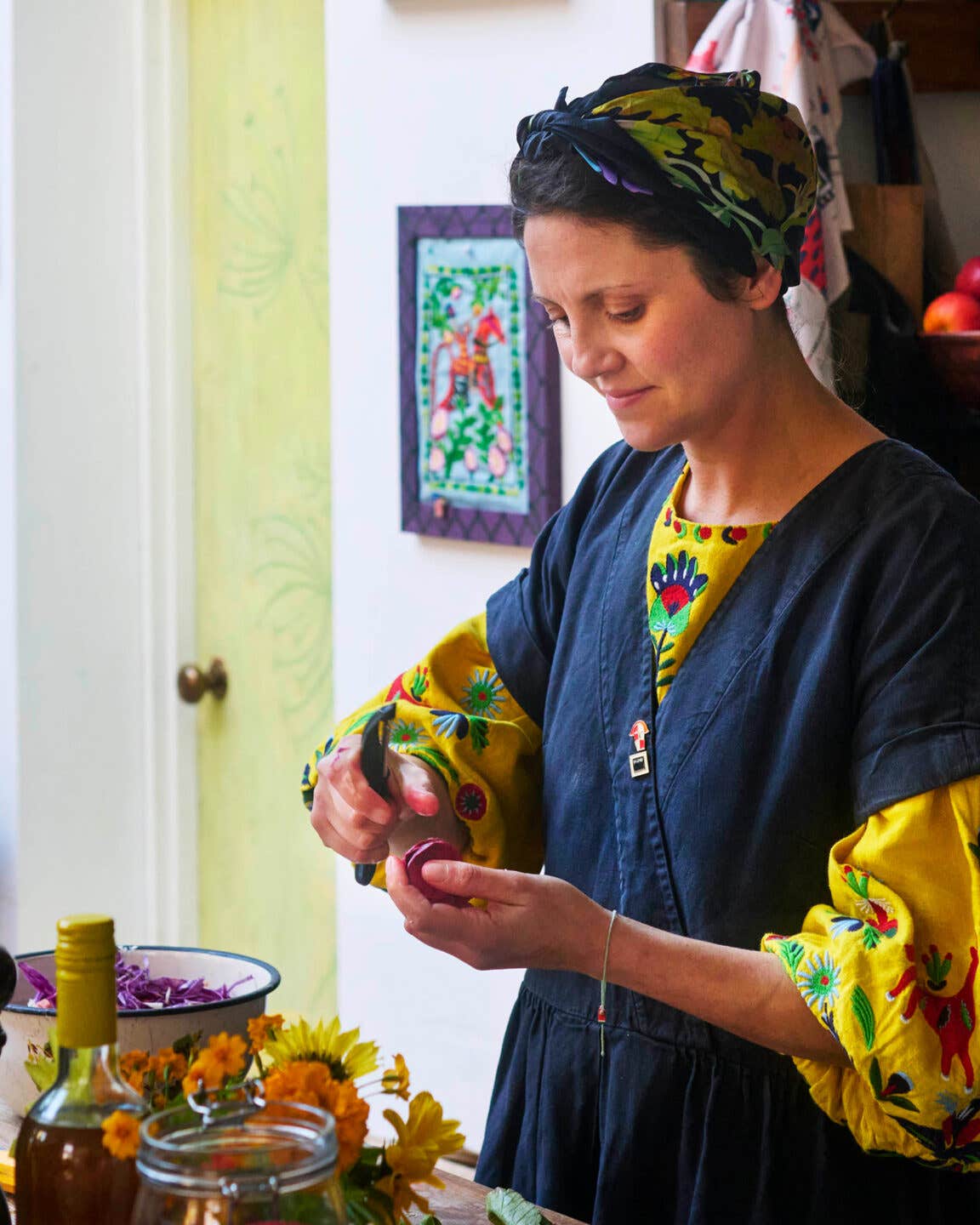
A Fish Tale
My late uncle Marvin Gordon, who was nobody's fool, believed that food should be exactly what it claims to be; he loathed anything that turned up on a menu enclosed in quotation marks or prefaced by the word mock. So, the first time his future mother-in-law—my grandmother Bertha Altman—served him bailik fish in her Brooklyn kitchen, back in the 1930s, Uncle Marvin surely thought the wool was being pulled over his eyes, for bailik fish isn't made with fish at all; it's made with chicken. But my grandmother, like her mother before her, had been turning out the poached dumplings for years, serving them as an inexpensive and milder-flavored alternative to gefilte fish, those cold fish dumplings that show up faithfully on big Jewish holidays like Rosh Hashanah, Yom Kippur, and Passover.
I have my own memories of my grandmother standing alongside my dad in that same Brooklyn kitchen in the 1980s, both of them hand-grinding pieces of boneless, skinless chicken breast into a bowl and mixing in eggs, matzo meal, and white pepper before shaping the quenelle-like dumplings and dropping them into a wobbly stockpot with a dented bottom. Just like gefilte fish, her bailik fish was always served chilled, along with a dollop of horseradish and a slice of the carrot that the dumplings had been cooked with. The delicacy remains a favorite in my family today.
I've found no written documentation of the origins of bailik fish (also known as false fish and gefilte chicken), but, according to my late father and other self-appointed experts on the subject, the dish was devised by Jewish cooks of old who lived in places where freshwater fish like whitefish, carp, and pike—the traditional components of gefilte fish—weren't readily available. Another theory has it that chicken was simply more plentiful, and therefore less expensive, than fish in your typical Eastern European shtetl. The dish's name seems to support that version of the story: bailik may be an adaptation of the Yiddish word bilig, which means cheap. But my 91-year-old aunt Thelma Gordon (Uncle Marvin's wife) has a different explanation, which can be attributed to years of hands-on experience making Jewish holiday food: it's easier to get kids to eat bailik fish than the real deal.
Keep Reading
Continue to Next Story










